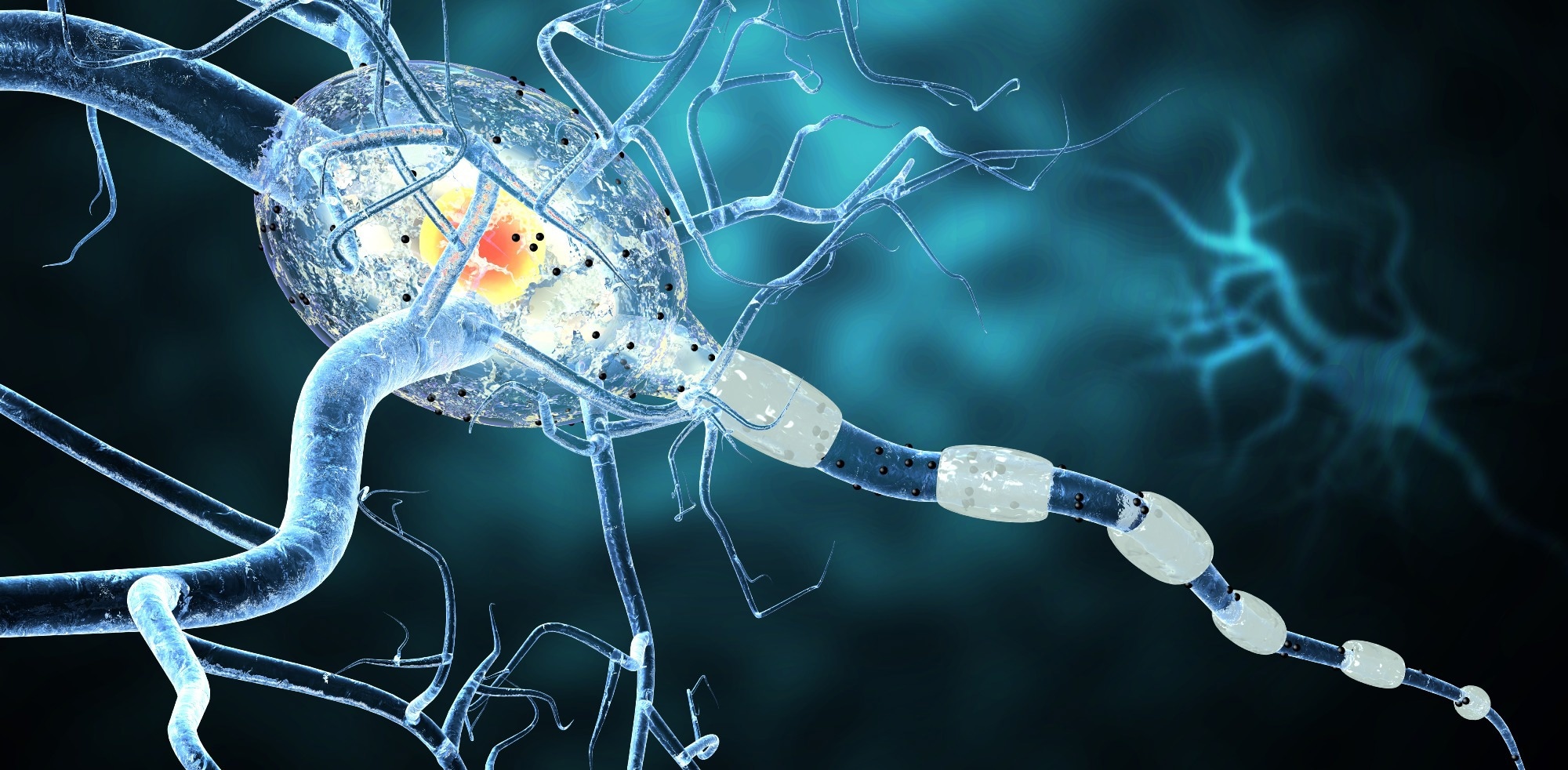Exploring DNA methylation biomarkers of multiple sclerosis
Epigenome-wide association studies (EWAS) of DNA have established that altered DNA methylation is associated with multiple sclerosis (MS). Considering this evidence, a recent International Journal of Molecular Sciences study identifies cell-specific DNA methylation signatures associated with MS.
 Study: DNA Methylation Signatures of Multiple Sclerosis Occur Independently of Known Genetic Risk and Are Primarily Attributed to B Cells and Monocytes. Image Credit: Ralwell / Shutterstock.com
Study: DNA Methylation Signatures of Multiple Sclerosis Occur Independently of Known Genetic Risk and Are Primarily Attributed to B Cells and Monocytes. Image Credit: Ralwell / Shutterstock.com
What causes MS?
MS is a chronic autoimmune condition that affects the brain and spinal cord. This neurodegenerative disease is caused by varied genetic, environmental, and lifestyle factors.
Genome-wide association studies (GWAS) have successfully identified over 200 single nucleotide polymorphisms (SNPs) linked to MS risk. Although many studies related to MS are available, limited information is currently available on the precise pathogenesis of MS.
DNA methylation is the most frequently studied epigenetic modification that is associated with increased levels of CpG methylation. Typically, increased CpG methylation is linked with gene silencing and demethylation with gene activation.
Background
Several studies have indicated that dysregulation in the balance of immune cells in the central nervous system (CNS) causes MS. Altered cell ratios between adaptive and innate immune cells lead to disease activity.
Other factors that increase MS risk include viral infection, particularly Epstein-Barr Virus (EBV), low ultraviolet radiation exposure, smoking, low vitamin D levels, and nulliparity. Although the exact mechanism linked to MS is not clear, there is a clear epigenetic connection that increases the risk of MS.
EWAS of DNA has identified differential methylation at HLA-DRB1*1501, which partially mediates the association between the risk allele at this locus and MS. Although isolated cell-type EWAS studies have been conducted using a modest sample size, it has been difficult to conduct whole blood EWAS studies due to the higher risk of missed cell type-specific differential methylation.
About the study
The current study utilized EWAS to identify DNA methylation signatures of MS. Here, EWAS was performed on bisulfite-treated genomic DNA of whole blood DNA from MS cases and controls. Statistical tools were used to determine cell-specific methylation signatures associated with the disease.
A total of 583 individuals with MS and 643 controls from three independent groups were analyzed in this study. The discovery group comprised 208 MS cases and 402 matched non-MS controls. For this group, whole blood samples were collected at baseline from The Australian Multi-Centre Study of Environment and Immune Function (Ausimmune study).
The first validation group comprised 140 MS cases and 139 controls from Sweden, whereas the second validation group consisted of 235 MS cases from Australia. The Australian group did not have controls, for which 102 non-MS controls were matched from a publicly available dataset.
Study findings
Consistent with previous studies, the most robust methylation differences were observed within the major histocompatibility complex (MHC) class II locus within HLA genes.
As compared to previously described genetic risk factors, the current study provided evidence that methylation alone is a strong determining factor for MS. However, future research is needed to establish whether alterations in methylation are causative or a consequence of MS.
These changes were detected at an early phase of MS, thus eliminating the possibility of these changes being a consequence of chronic disease. It will be challenging to understand whether these alterations in methylation occur at birth, during the prodromal period, or after disease onset, as DNA methylation is significantly influenced by environmental factors.
The current study confirms previous reports and provides evidence of the role of DNA methylation as a mediator of the HLA-DRB1*1501 allele. These findings also indicate that this reaction occurs early in disease pathology rather than as a result of treatment or long-standing disease.
Differential DNA methylation was primarily linked to B-cells and monocytes, with minimal contribution from CD4+ and CD8+ T lymphocytes. In addition to the thirteen differentially methylated positions (DMPs) located at HLA genes, two additional robust signals localized to interferon-related genes were identified, thus suggesting that DMPs could be influenced by MS treatment.
Conclusions
The current study has some limitations, such as the use of a heterogeneous dataset in terms of clinical characteristics. Furthermore, the validation group included participants with mixed treatments and long-standing MS. The heterogeneity limits the ability to determine whether specific treatment or disease progression affected methylation change.
Despite these limitations, the study findings suggest that methylation is a more prominent discriminator of MS status than genetics.
Notably, B-cells and monocytes were identified as the largest contributors to the whole blood DNA methylation signal in MS. Strong differential methylation signals from both CD4+ and CD8+ T-cells were also observed.
Future studies are needed to understand the effect of environmental exposure on methylation change and MS risk.
- Xavier, A., Maltby, V. E., Ewing, E., et al. (2023) DNA Methylation Signatures of Multiple Sclerosis Occur Independently of Known Genetic Risk and Are Primarily Attributed to B Cells and Monocytes. International Journal of Molecular Sciences 24(16). doi:10.3390/ijms241612576 https://www.mdpi.com/1422-0067/24/16/12576
Posted in: Genomics | Medical Science News | Medical Research News | Medical Condition News | Disease/Infection News
Tags: Allele, Blood, Brain, CD4, Cell, Central Nervous System, Chronic, Chronic Disease, CpG, DNA, DNA Methylation, Epstein-Barr Virus, Gene, Gene Silencing, Genes, Genetic, Genetics, Genome, Genomic, Interferon, Locus, Multiple Sclerosis, Nervous System, Neurodegenerative Disease, Nucleotide, Pathology, Radiation Exposure, Research, Sclerosis, Single Nucleotide Polymorphisms, Smoking, Virus, Vitamin D

Written by
Dr. Priyom Bose
Priyom holds a Ph.D. in Plant Biology and Biotechnology from the University of Madras, India. She is an active researcher and an experienced science writer. Priyom has also co-authored several original research articles that have been published in reputed peer-reviewed journals. She is also an avid reader and an amateur photographer.